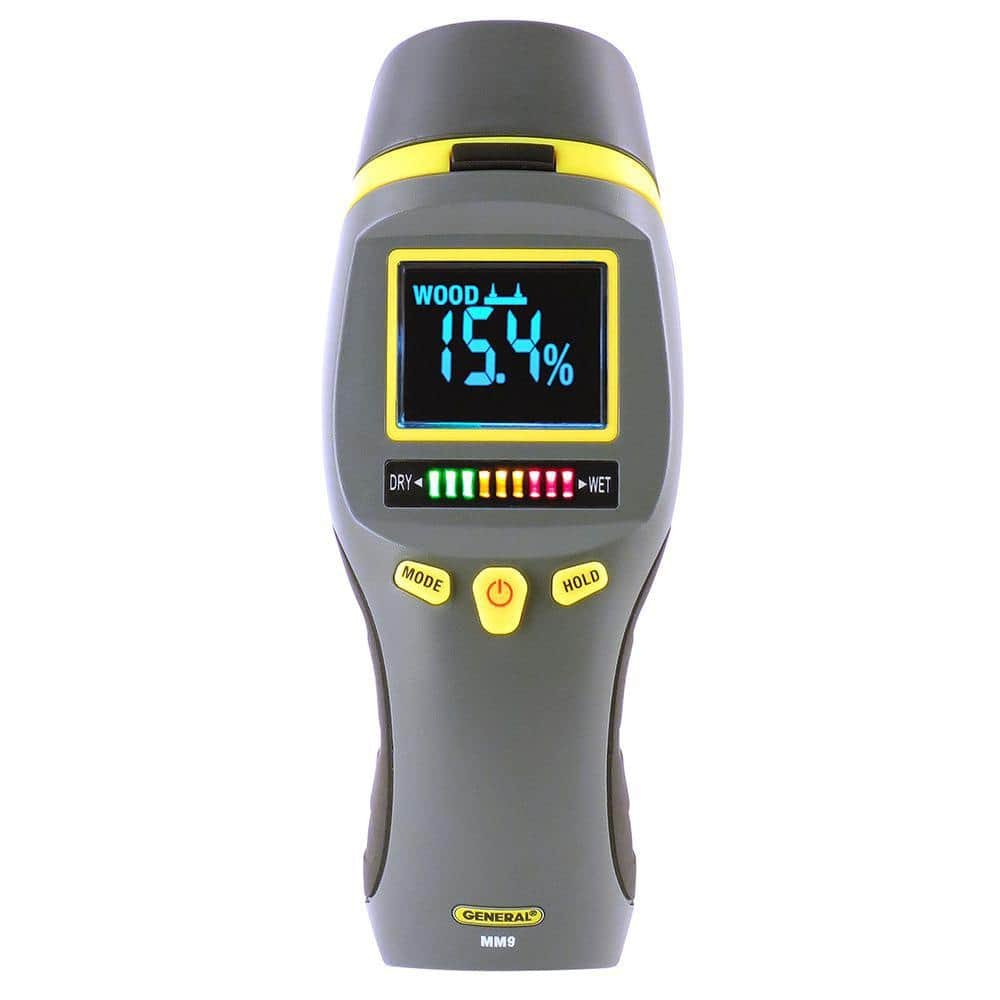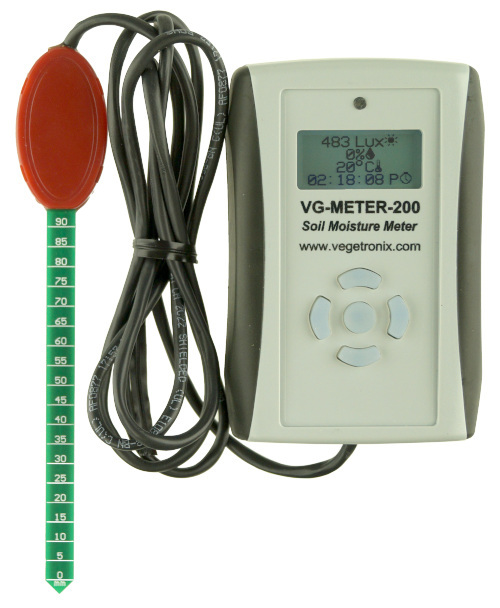Comprehending the Various Types of Moisture Meters and Their Applications
Comprehending the Various Types of Moisture Meters and Their Applications
Blog Article
The Ultimate Overview to Moisture Meters: A Comprehensive Summary and How They Can Conserve You Money
In the realm of structure maintenance, construction, and numerous markets, the significance of properly determining moisture degrees can not be overstated. Dampness meters work as vital tools in spotting and keeping an eye on moisture material in products, helping in stopping pricey problems and making certain the high quality of items. Comprehending the subtleties of different kinds of dampness meters, their applications, and the potential cost-saving benefits they use can be a game-changer for businesses and experts alike. Finding exactly how these tools can not just streamline processes but likewise add to economic cost savings is a trip worth starting.
Kinds Of Moisture Meters
One typical kind is the pin-type moisture meter, which determines the electric resistance in between two pins put into a product. Pinless moisture meters, on the other hand, use electromagnetic sensor plates to check a bigger location without causing damages to the material's surface area.
Infrared dampness meters measure the thermal residential properties of a material to determine its dampness web content non-invasively, making them useful for applications where pin or pinless meters may not be appropriate. Recognizing the different types of dampness meters readily available can assist markets choose the most appropriate device for their certain wetness measurement demands.

Benefits of Making Use Of Moisture Meters

Furthermore, utilizing wetness meters can bring about enhanced energy effectiveness. By recognizing locations with high moisture levels, such as leaks or bad insulation, modifications can be made to boost power conservation and decrease utility expenses. In farming setups, dampness meters play a crucial role in enhancing plant returns by making it possible for farmers to check soil moisture levels and make notified irrigation choices. Generally, the advantages of using moisture meters span across numerous sectors, providing affordable services and advertising better quality assurance methods.
How to Select the Right Moisture Meter
Choosing the suitable moisture meter entails taking into consideration vital aspects such as material compatibility, dimension range, and calibration precision. When picking a moisture meter, it's necessary to guarantee that the meter appropriates for the specific product you will certainly be screening. Different materials have differing electrical homes that can affect dampness analyses, so selecting a meter made for your material is crucial for exact results. In addition, think about the dimension variety of the moisture meter. Make certain that the meter can discover moisture degrees within the range needed for your applications. Calibration accuracy is an additional crucial variable to bear in mind (Moisture Meter). Go with a moisture meter with reliable calibration to make sure accurate and regular analyses. Some meters may need periodic calibration changes, so comprehending the calibration procedure is essential. By very carefully assessing these variables, you can select a moisture meter that satisfies your needs and gives precise dampness measurements for your projects.
Proper Methods for Moisture Meter Usage
To guarantee precise dampness analyses and make best use of the effectiveness of a wetness meter, using proper methods is crucial. When using a pin-type moisture meter, place the pins or probes right into the product being examined until they make full get in touch with. Make sure the pins are vertical to the surface area to obtain the most accurate analysis. For pinless dampness meters, hold the device level against the material and relocate gradually to cover the entire location for an ordinary reading. It's vital to adjust the wetness meter according to the product being evaluated to boost precision. Take multiple readings throughout the surface area and ordinary them out for a more reliable outcome. Additionally, ensure that the material being tested is accommodated to the setting to prevent skewed analyses. Normal upkeep of the dampness meter, such as cleaning the pins or sensor, is additionally essential to make certain regular and precise analyses. By adhering to these appropriate techniques, users can count on their wetness meter to offer trustworthy dampness degrees, aiding in preventing pricey damages or guaranteeing quality in numerous applications.

Price Financial Savings With Moisture Meter Applications
Exactly how can the tactical application of wetness meters lead to substantial cost financial savings across different industries? Wetness meters play an essential role in expense financial savings by stopping potential damages and guaranteeing top quality control in different investigate this site markets. In the farming sector, moisture meters aid in identifying the optimum time for harvesting plants, preventing excess or over-drying dampness that can impact the final product's top quality. This precise monitoring assists farmers stay clear of unneeded losses and maximize their yield.

Furthermore, in the food processing industry, moisture meters are important for keeping an eye on product high quality and making sure compliance with security policies. By precisely determining wetness content in food, manufacturers can prevent spoilage, maintain freshness, and lower waste, causing substantial price financial savings. On the whole, the strategic application of moisture meters is a valuable investment that can result in substantial cost decreases and boosted effectiveness throughout numerous sectors.
Final Thought
To conclude, moisture meters are valuable devices for identifying and gauging moisture degrees in different materials. By using the ideal wetness meter and complying with proper techniques, users can properly avoid costly problems created by excess wetness. Spending in a high quality dampness meter can cause considerable cost financial savings in the long run by identifying prospective issues early on and making it possible for punctual removal. Inevitably, dampness meters are vital tools for preserving the stability and durability of structures and products.
Dampness meters serve as vital devices in spotting and visit their website checking moisture web content in materials, aiding in stopping pricey problems and ensuring the quality of products. Infrared wetness meters gauge the thermal residential or commercial properties of a material to identify its dampness web content non-invasively, making them valuable for applications where pin or pinless meters may not be suitable.Moisture meters provide very useful advantages in precisely analyzing and keeping track of dampness degrees in varied materials and atmospheres. In farming setups, dampness meters play a vital role in enhancing plant returns by making it possible for farmers to monitor soil wetness degrees and make educated watering choices.In conclusion, wetness meters find out here now are important devices for identifying and measuring wetness degrees in numerous products.
Report this page